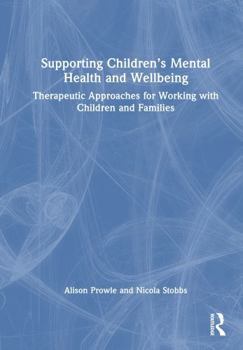Supporting Children's Mental Health and Wellbeing: Therapeutic Approaches for Working with Children and Families
This key text recognises the importance of upskilling students and practitioners to understand children's holistic needs and to develop new ways of working therapeutically that support their wellbeing and resilience.
The book outlines why therapeutic approaches are necessary, considers the range of approaches that are available and the evidence behind them, and shows how these can be used to support children and families in an increasingly challenging practice landscape. Placing an emphasis on self-care, it celebrates the role of the practitioner as an inspirer of hope and architect of resilience and self-efficacy. Chapters:
Provide an overview of adversity, trauma and holistic wellbeing. Include helpful case studies and practical examples, alongside reflective questions that can be used as discussion points in seminars. Take a multidisciplinary approach with contributions from specialists working directly with children and families across a range of settings. Equip students and practitioners with a wide range of models, tools and approaches to achieve their best outcomes. Offer advice for developing a therapeutic relationship, and the skills and dispositions needed for practice.This informative and practical book will be essential reading for students in a range of disciplines, including early years professional practice and early childhood degrees, as well as education, health, social care and community services. It will also be a valuable resource for early years and primary practitioners, trauma-informed schools and organisations supporting children and families.





